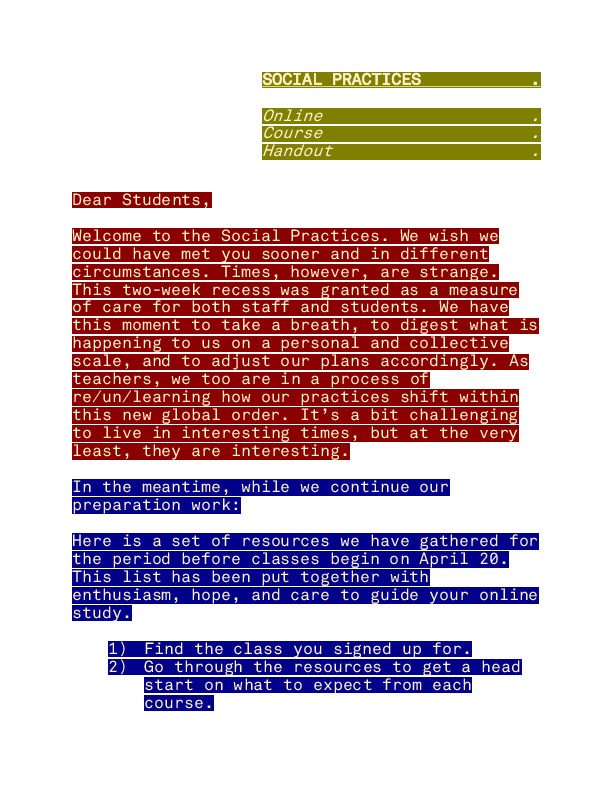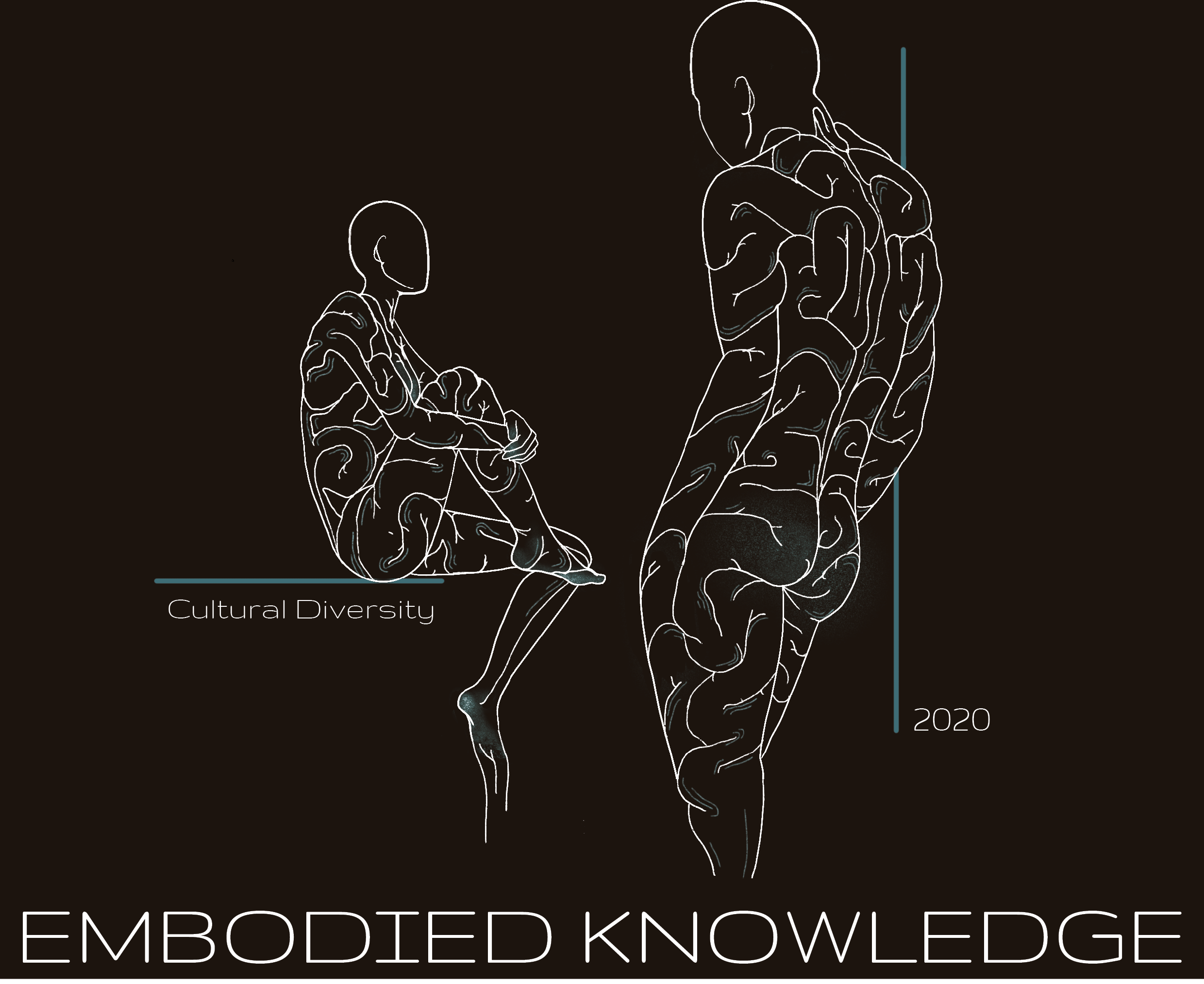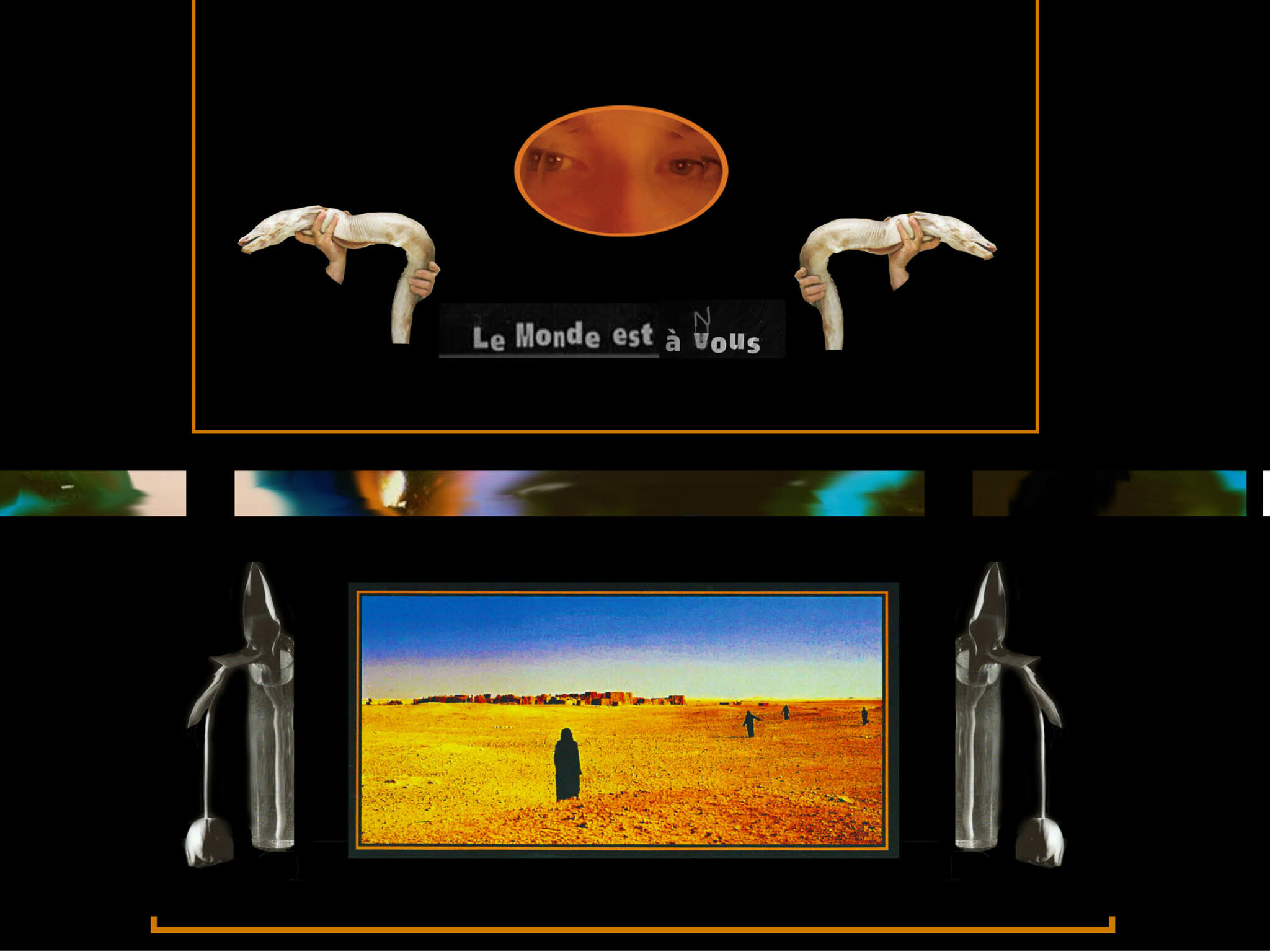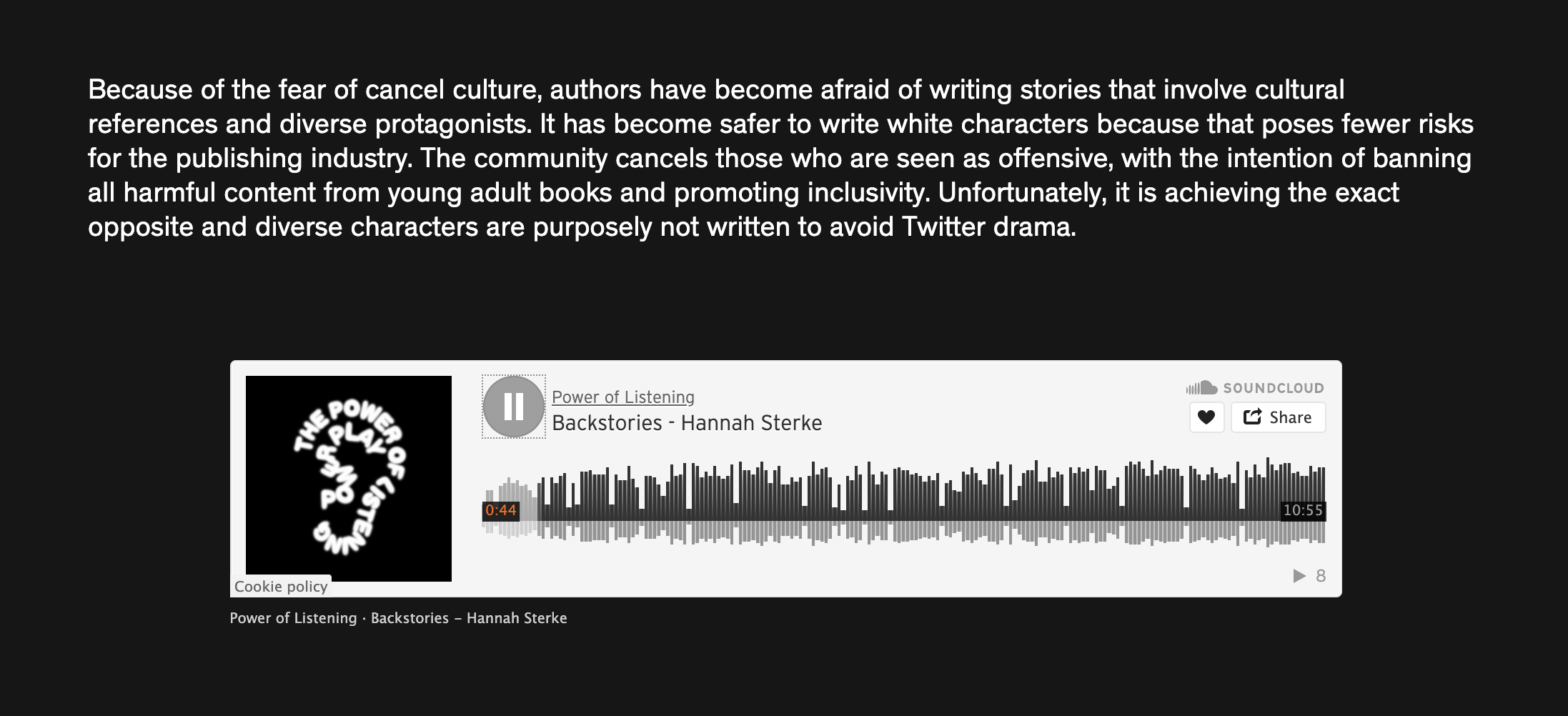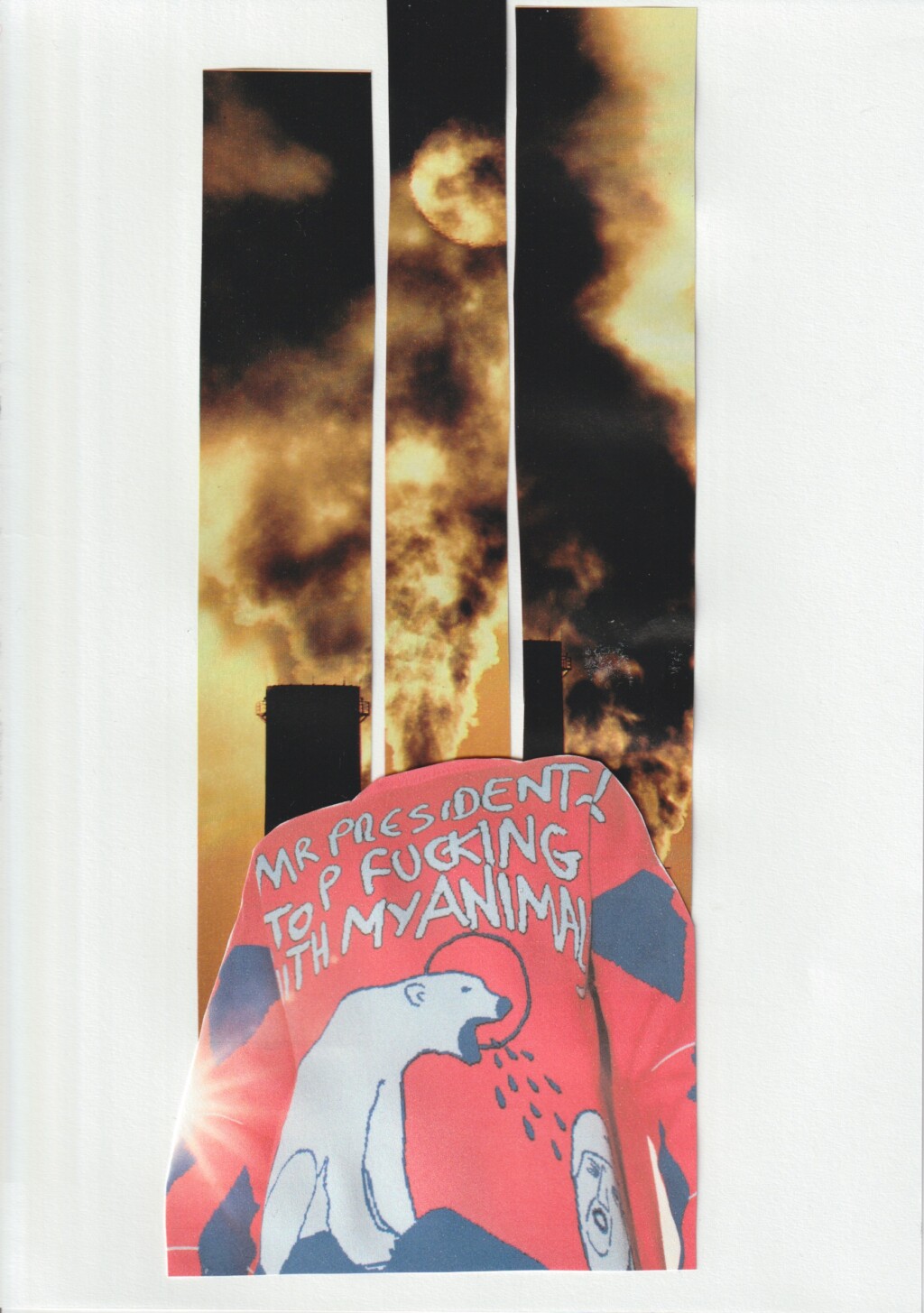Difference between revisions of "Class Archives"
(→Year 4) |
(→Year 4) |
||
| Line 28: | Line 28: | ||
==== Year 4 ==== | ==== Year 4 ==== | ||
| − | https://www.poweroflistening.nl/ | + | CLASS ARCHIVE: https://www.poweroflistening.nl/ |
| + | [[File:Powerplay4.png|frame|Exhibition statement of "The Power of Listening" an online exhibition by Powerplay 4 (2020-2021)]] | ||
<b>Decolonial Listening</b> | <b>Decolonial Listening</b> | ||
| − | |||
| − | |||
| − | |||
| − | |||
Decolonial Listening can be the practice of humbling yourself in engaging with others and the world, in whatever form that takes. Humbling your own knowledge and self to make space for listening to one another, to what surrounds us. Listening in this way, we work towards a more ethical relationship to the world. | Decolonial Listening can be the practice of humbling yourself in engaging with others and the world, in whatever form that takes. Humbling your own knowledge and self to make space for listening to one another, to what surrounds us. Listening in this way, we work towards a more ethical relationship to the world. | ||
| − | + | [[File:PP 4 The Other Kira Bolder.jpg|frame|"The Other" by Kira Bolder, a project that explores depictions of Islam in Western media and the after-effect this has on the Muslim people in the Netherlands and people who are depicted as Muslims by others. ]] | |
We will meditate on how some knowledges and knowledges practices are imposed, acknowledging that there are dominant narratives and stories that impact and somehow take up space over others. Decolonial listening explores and attempts to unearth those knowledges that have been overlooked, silenced and disregarded. | We will meditate on how some knowledges and knowledges practices are imposed, acknowledging that there are dominant narratives and stories that impact and somehow take up space over others. Decolonial listening explores and attempts to unearth those knowledges that have been overlooked, silenced and disregarded. | ||
| − | + | [[File:PP 4 Back Stories Hanna Sterke.png|frame|Podcast interview with Hanna Sterke on her project "Backstories", a project on the impact of cancel culture on the publishing industry.]] | |
| − | We will interrogate the power structures, their languages, and the relations built within them; the role of power in (re)producing violence, domination and marginalization. We will engage with theoretical ideas that disrupt or dismantle the infrastructure of power, concentrating on how various ways of listening are vital in accepting, rejecting, or refusing power. | + | We will interrogate the power structures, their languages, and the relations built within them; the role of power in (re)producing violence, domination and marginalization. We will engage with theoretical ideas that disrupt or dismantle the infrastructure of power, concentrating on how various ways of listening are vital in accepting, rejecting, or refusing power. |
| − | + | [[File:PP 4 The Act of Nonviolent Protest Joke van Driel.jpg|frame|"The Act of Nonviolent Protest" by Joke van Driel (Graphic Design), a research project on nonviolent civil resistance and the consequences of the climate crisis for the Netherlands.]] | |
| − | [[File: | ||
==== Year 3 ==== | ==== Year 3 ==== | ||
Revision as of 21:06, 3 February 2021
Contents
2020-2021
Course Manuals
Years 3–4
Under construction
Year 2
Course begins in April 2021. In the meantime, you can check our manual from last year.
˚˚˚ cL1CK ˚˚˚˚ h€r3 ˚˚˚˚
Cultural Diversity
Year 4
https://cultural-diversity-class.hotglue.me/
Embodied Knowledge(s)
Ideas are not something generated through distance but follow the thinking of Sara Ahmed (2017) in that they arise from our involvement in a world that can leave us feeling a variety of things from bewilderment, confusion, through to joy and happiness.
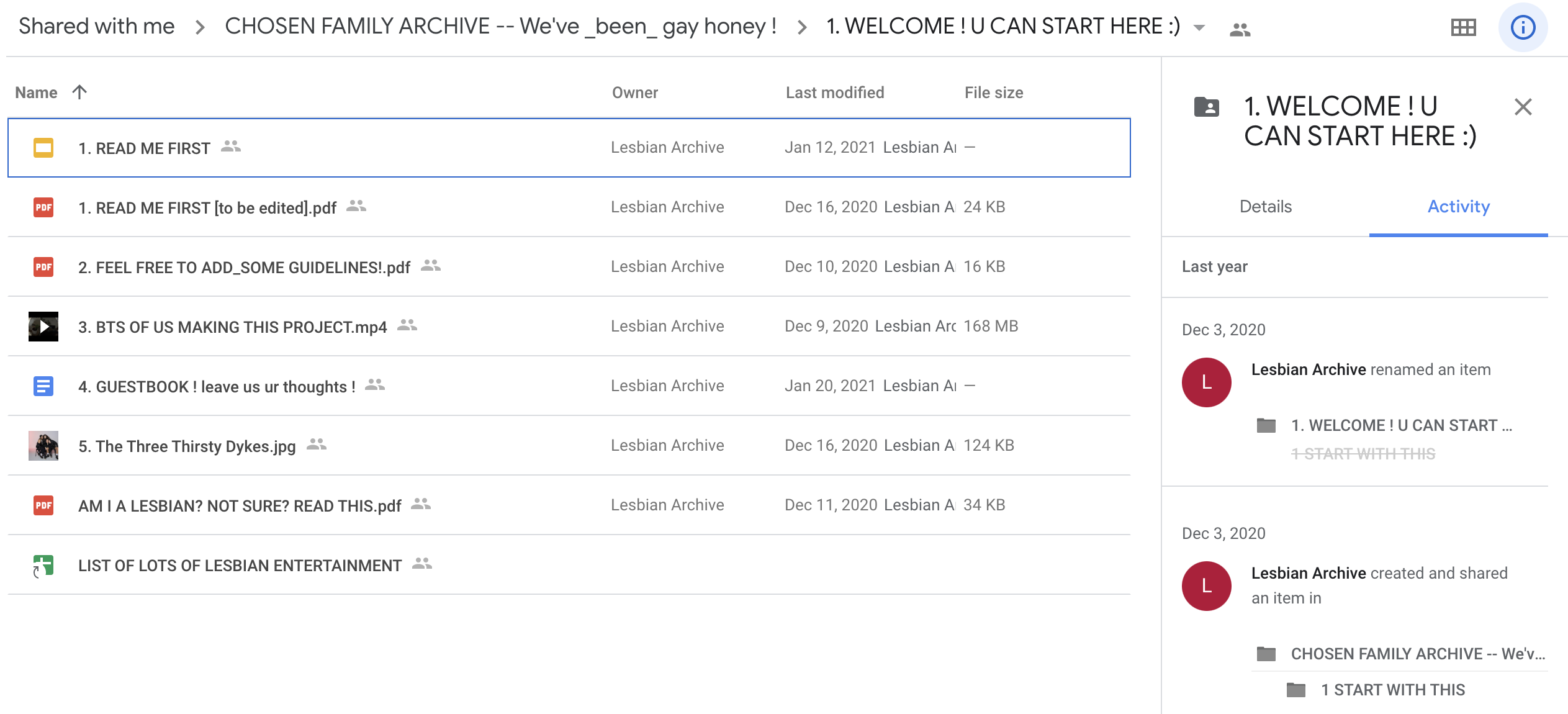 The body “knows” things and how to do things and can enable us to work on our intuition, with our sense that something is not quite right as the starting point for thinking critically. Without the bodily, we would not be able to organize ourselves in our environment.
The body “knows” things and how to do things and can enable us to work on our intuition, with our sense that something is not quite right as the starting point for thinking critically. Without the bodily, we would not be able to organize ourselves in our environment.
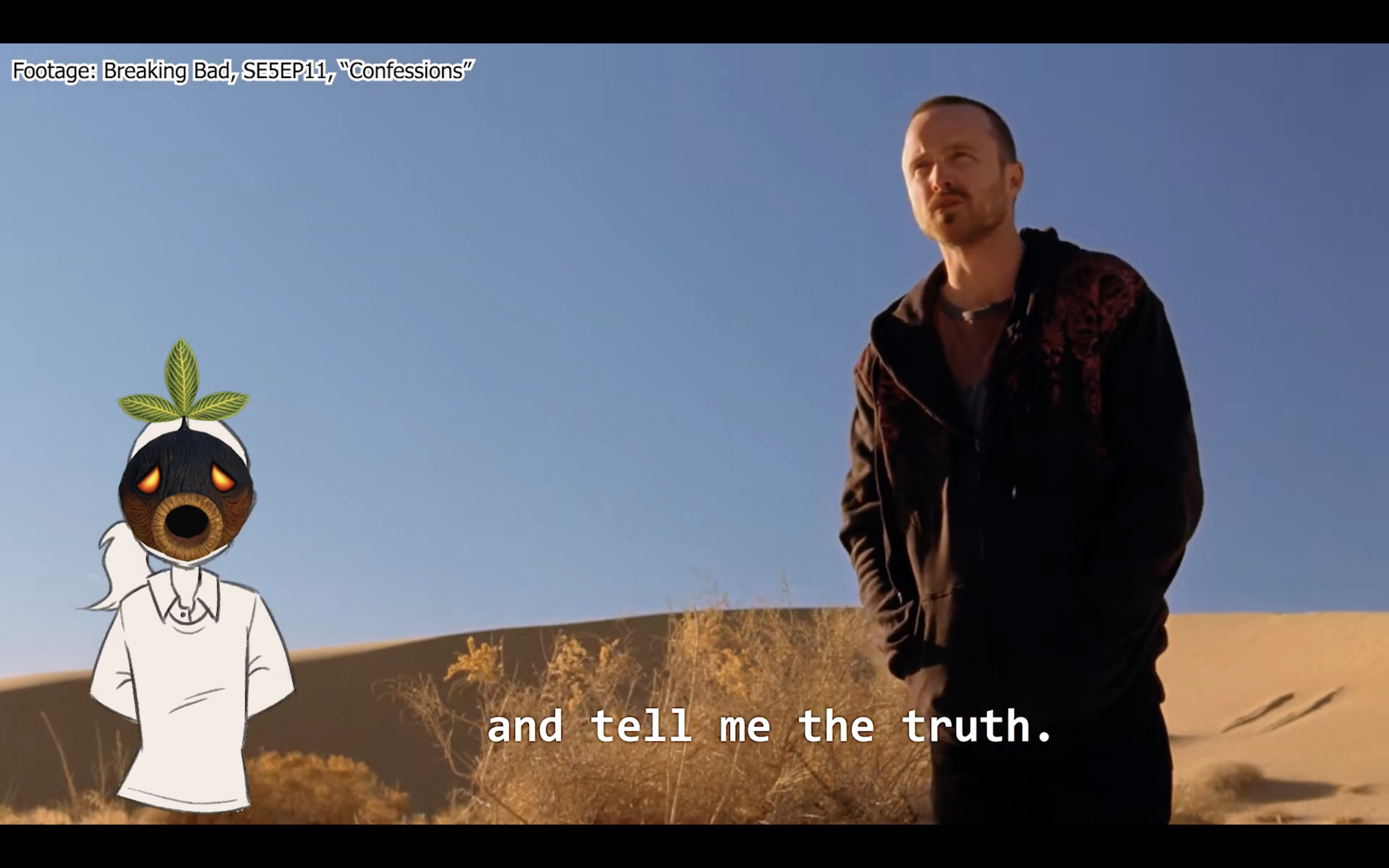 We would not know where/what we are, what/how we are learning or how we can communicate about our feelings, experiences and modes of being. Our bodies are continually in a process of becoming. With what lenses do we gaze on our bodies and those of others?
We would not know where/what we are, what/how we are learning or how we can communicate about our feelings, experiences and modes of being. Our bodies are continually in a process of becoming. With what lenses do we gaze on our bodies and those of others?
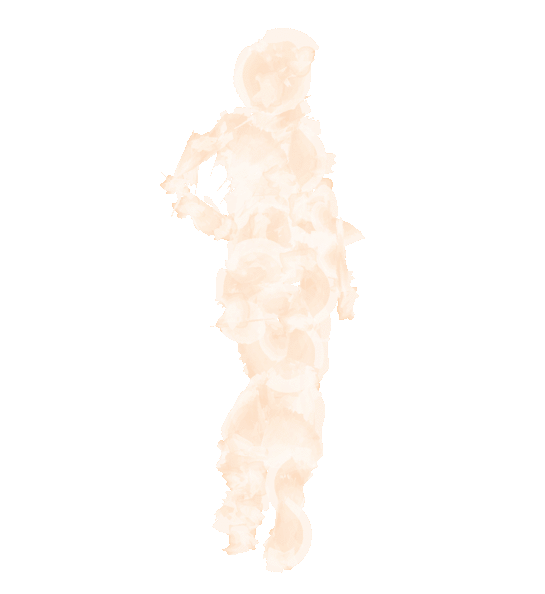
Year 3
https://p3culturaldiversity2020.hotglue.me/
Powerplay
Year 4
CLASS ARCHIVE: https://www.poweroflistening.nl/
Decolonial Listening
Decolonial Listening can be the practice of humbling yourself in engaging with others and the world, in whatever form that takes. Humbling your own knowledge and self to make space for listening to one another, to what surrounds us. Listening in this way, we work towards a more ethical relationship to the world.
We will meditate on how some knowledges and knowledges practices are imposed, acknowledging that there are dominant narratives and stories that impact and somehow take up space over others. Decolonial listening explores and attempts to unearth those knowledges that have been overlooked, silenced and disregarded.
We will interrogate the power structures, their languages, and the relations built within them; the role of power in (re)producing violence, domination and marginalization. We will engage with theoretical ideas that disrupt or dismantle the infrastructure of power, concentrating on how various ways of listening are vital in accepting, rejecting, or refusing power.
Year 3
https://recordingviolence2020.hotglue.me/
New Earth
Year 4
https://www.youtube.com/watch?v=tpf2VVKll1Y
Documentation of online public presentation
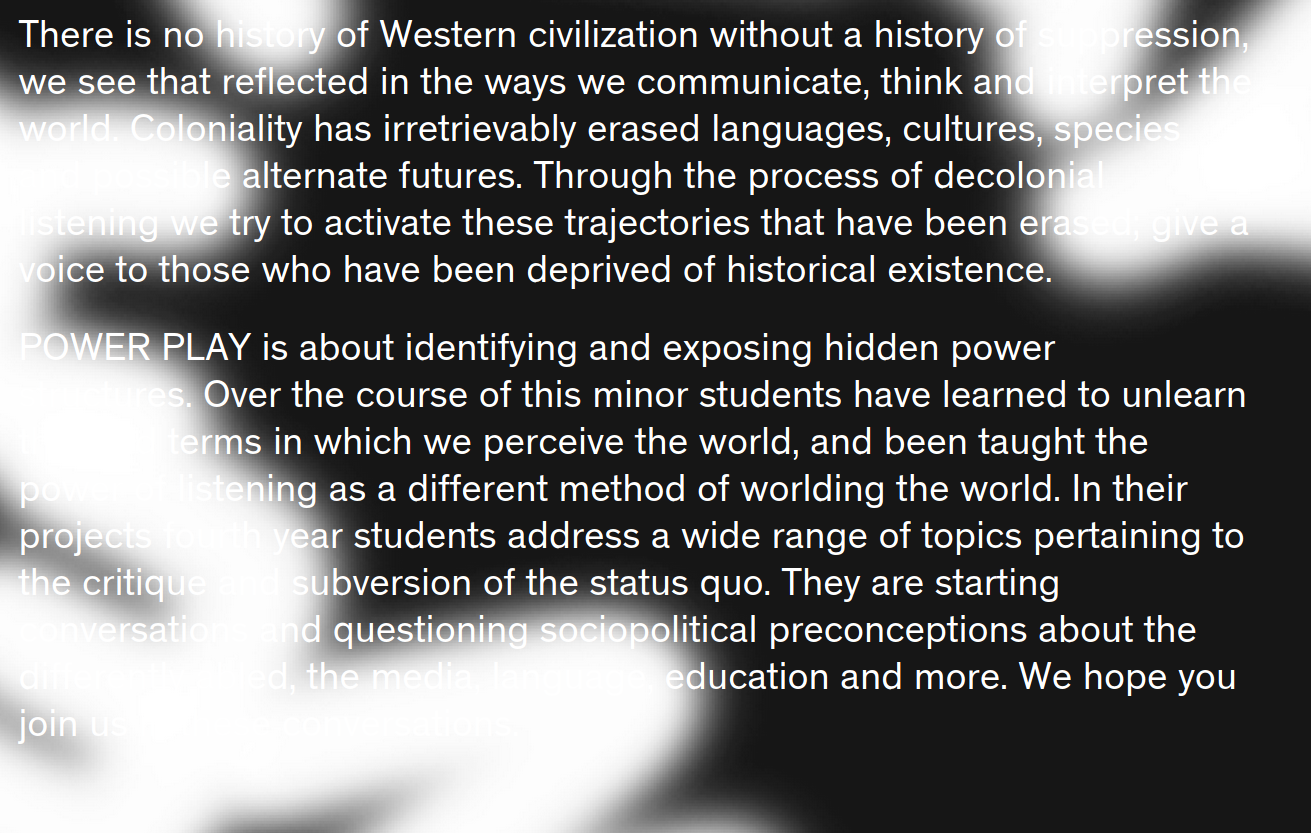
Year 3
https://2021.mywdka.nl/WDKP31SPNE/
For WdKA and Hogeschool Rotterdam users only, not a public archive

